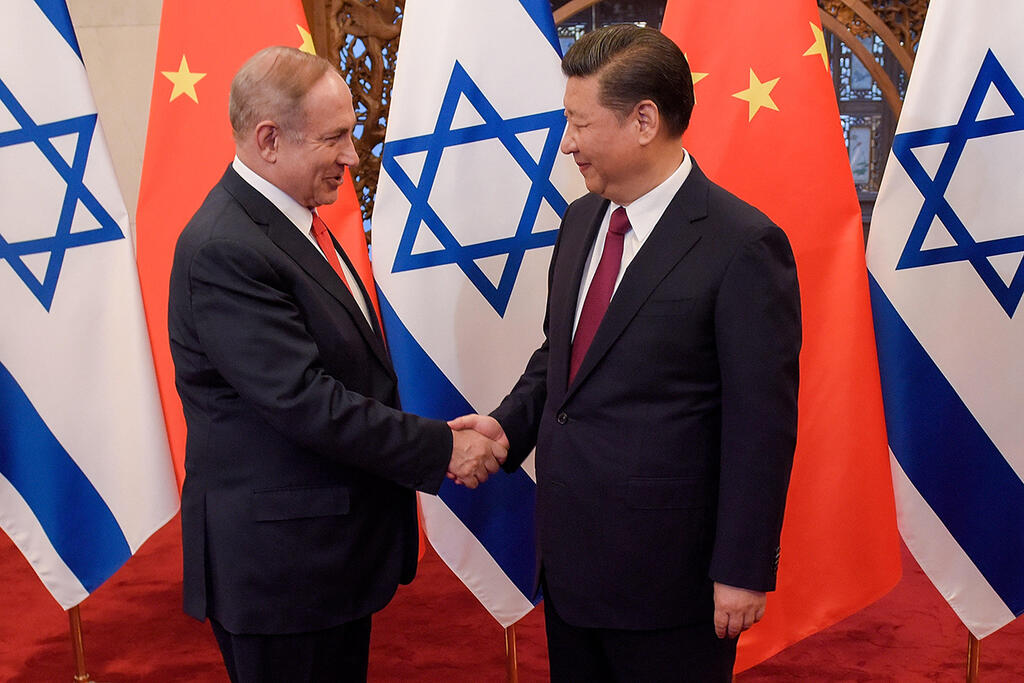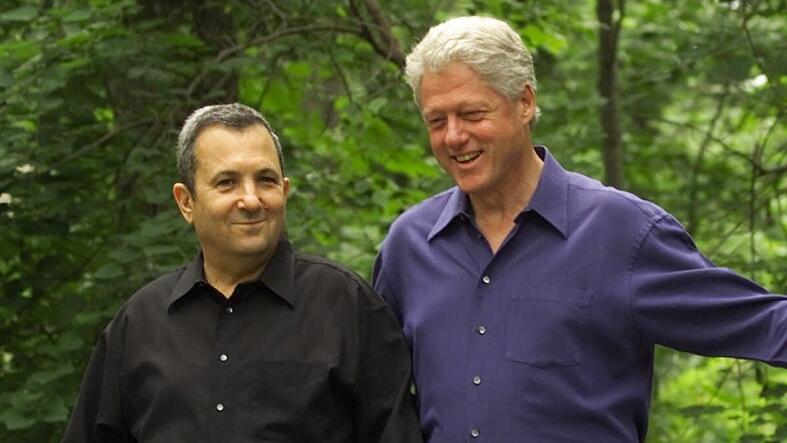As Prime Minister Benjamin Netanyahu's controversial planned visit to China approaches, which has sparked criticism from both domestic and international sources, allow me to recount a frustrating event from the beginning of the millennium.
More stories:
At the time, Israel conducted a sale of the locally made Phalcon spy plane to China out of a desire to get involved on the international stage, all while disregarding the United States.
In 1996, the state-owned Israel Aerospace Industries signed an agreement to supply advanced intelligence-gathering equipment to China. In 1997, after Prime Minister Netanyahu's visit to Moscow, Russia approved the sale of a Russian aircraft, the Ilyushin-76, to the aerospace industry, equipped with intelligence-gathering apparati.
The possibility of obtaining three more aircraft for about a quarter billion dollars each was also discussed. At the time, I was working at the Foreign Ministry in Jerusalem, and was responsible for handling relations with Russia. Diplomatic relations with Moscow and China were in their infancy, and this business deal promised a significant income. What could be wrong with that?
In 1999, when the deal began to draw attention in the United States, Ehud Barak was prime minister and defense minister, and I was responsible for the country’s relations with the U.S. Congress in the Israeli Embassy in Washington.
For decades, the United States has provided Israel with diplomatic support, financial assistance and vital weaponry. However, anyone familiar with American politics understands that to advance something new or overcome obstacles you need allies.
In this case, we had no partners; we were on our own. American conservatives, among other things, feared that the aircraft would bolster China's capabilities and undermine U.S. strategic interests. Liberal opposition also stemmed from China's mistreatment of human rights.
Then U.S. President Bill Clinton informed Barak the United States opposed the deal and that senior lawmakers expressed concern with it.
And what did Israel do? It dismissed the reports and the numerous warnings from the professional staff at the embassy, ignoring pleas from friends, including Jewish organizations, who saw their support for Israel as their raison d'être and were astonished when the country just asked them to trust in Israel.
The American media fervently covered the issue. For instance, William Safire, a prominent columnist for The New York Times, a Jewish man and a supporter of Israel, attempted to contact the prime minister multiple times.
Barak did not respond, and Safire took advantage of his platform at least twice to report to his readers about his attempts to contact him and Israel was ignoring him. In response, an Israeli source suggested the Israeli media consider imposing a boycott on American companies.
Senior Israeli officials squarely accused the United States of being hypocritical, and anonymous officials declared that the American arms industry was behind the opposition to the deal, fearing the deal would harm the U.S. industry. And why not? Why would an American official prefer Israel's industry over that of his own country?
The first half of the year 2000 is etched in my memory as one big embarrassment. Wherever I was across the U.S., people asked me: Does anyone over there listen? Don't you understand that friendship is two-sided?
The professionals at the Israeli embassy conveyed the American sentiment, and the Foreign Ministry in Jerusalem understood. I deviated from protocol and called several high-ranking officials in the Defense Ministry directly. It proved futile.
On July 13, 2000, a vote was scheduled in the House Committee on Appropriations in the U.S. House of Representatives' Foreign Affairs Committee, which discussed foreign aid. This is the first practical stage in the process, culminating with the United States signing financial aid checks for next year.
The largest amount, with a significant gap, is given to Israel. The subcommittee chairman, then Sonny Callahan, an Alabama Republican, proposed an unprecedented amendment that would reduce U.S. aid to Israel by a quarter billion dollars, an amount equal to that of the deal with Russia.
In this forum, Democrats and Republicans typically clash over differing opinions, but unite to provide aid to Israel. On this issue, they were all united once again, and no one opposed the chairman's proposal.
4 View gallery


Benjamin Netanyahu is set to travel to China for an official visit
(Photo: Reuters/ Amir Cohen)
The message conveyed by the proposed amendment, suggesting we can’t make unilateral decisions in a mutual friendship, had its intended effect. A day before the vote, Israel announced the cancellation of the deal.
It seemed that all of Washington breathed a sigh of relief that day, yet the suspicion surrounding Israel’s relations with China didn’t dissipate. As for China, Israel paid compensations amounting to $350 million. For a long time afterward, Israel bore the brunt of China's cold shoulder.
It's possible that had we addressed the American concerns differently, the deal could have gone through. Perhaps we would have sold one aircraft instead of four, or maybe by adjusting the technology to satisfy China and appease the United States. Or perhaps not; certainty is elusive.
But there’s no doubt that the damage inflicted upon Israel's relationships - not with one country, but with two - arose from the arrogance of Israeli decision-makers. They chose to continue down their path, ignoring the pleas of friends who had Israel's best interests at heart and disregarding warnings from professional sources who were trained to understand, report, and alert ahead of time.
Tova Herzl was the first Israeli ambassador to the Baltic states following the dismantling of the USSR, acted as the ambassador to South Africa, and was in charge of relations with the U.S. Congress in the Israeli embassy in Washington.





